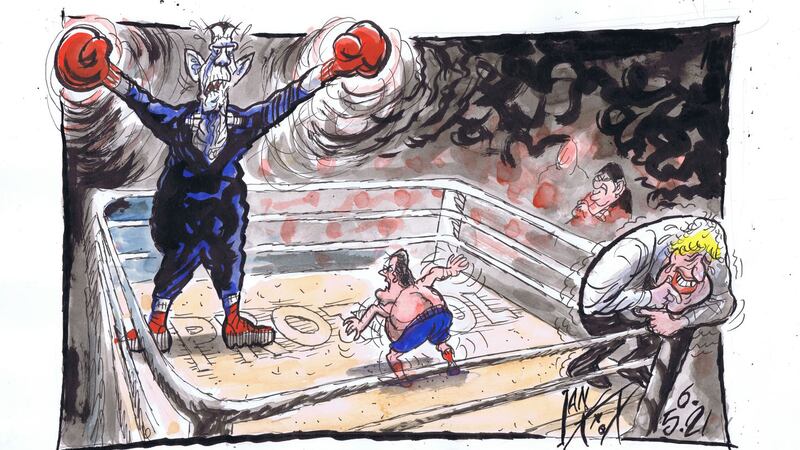FOR the first time in its chequered 50-year history, the DUP is preparing for a leadership contest.
Two men, both representing the Lagan Valley constituency, are in the running to succeed Arlene Foster: Stormont agriculture minister Edwin Poots and MP Sir Jeffrey Donaldson.
The party's 28 MLAs and eight MPs will cast their votes in a secret ballot next Friday after listening to 10-minute presentations from Mr Poots and Sir Jeffrey. The DUP is also seeking a new deputy leader after Nigel Dodds said he was stepping down.
There are already a number of unusual aspects to the contest, which is perceived as marking a watershed moment for the DUP.
For example, neither candidate will take the post of first minister.
Mr Poots says he wants to concentrate on rebuilding the party and to stay as agriculture minister, with apparently serious suggestions that he will nominate his Lagan Valley colleague Paul Givan as first minister.
Meanwhile, Sir Jeffrey can't become first minister because he is elected to Westminster, not Stormont.
The Poots camp had been bullish last week but its optimism appears to now be faltering. Sir Jeffrey has thus far maintained a low-key presence.
Where such a small and idiosyncratic electorate is concerned, it is too early to draw any conclusions as to who is the front-runner.
Statements and media contributions from the two candidates will be closely scrutinised in the days ahead for indications of where they will lead the DUP and how they see Northern Ireland's future more generally.
Do they regard the DUP's position as safer if they adopt the belligerent tone of the party's past, where Jim Allister and the TUV are present?
Or do they nudge the DUP in a moderate direction and seek to retain - or even gain - the support of those tempted to vote UUP or Alliance at the next assembly election?
How Mr Poots and Sir Jeffrey set out their stall on the touchstone issues of the Irish language, the Northern Ireland Protocol and north-south bodies will be central to answering those questions.
None of this takes place in a vacuum. Who the DUP chooses as its next leader is a matter for the party, but it is important to acknowledge the outcome will have implications at Stormont and beyond.
A contest that allows the candidates to set out their views in public in a transparent way would best serve not only the DUP but also the entire community.
On @BBCNolan today -
— Stephen Nolan (@StephenNolan) May 6, 2021
It's the sound of silence this morning from the DUP. The party has issued a de facto gagging order on Edwin Poots and Sir Jeffrey Donaldson
@bbcradioulster
@BBCSounds
03030805555 | 81771 pic.twitter.com/SEDQpoUGDI







